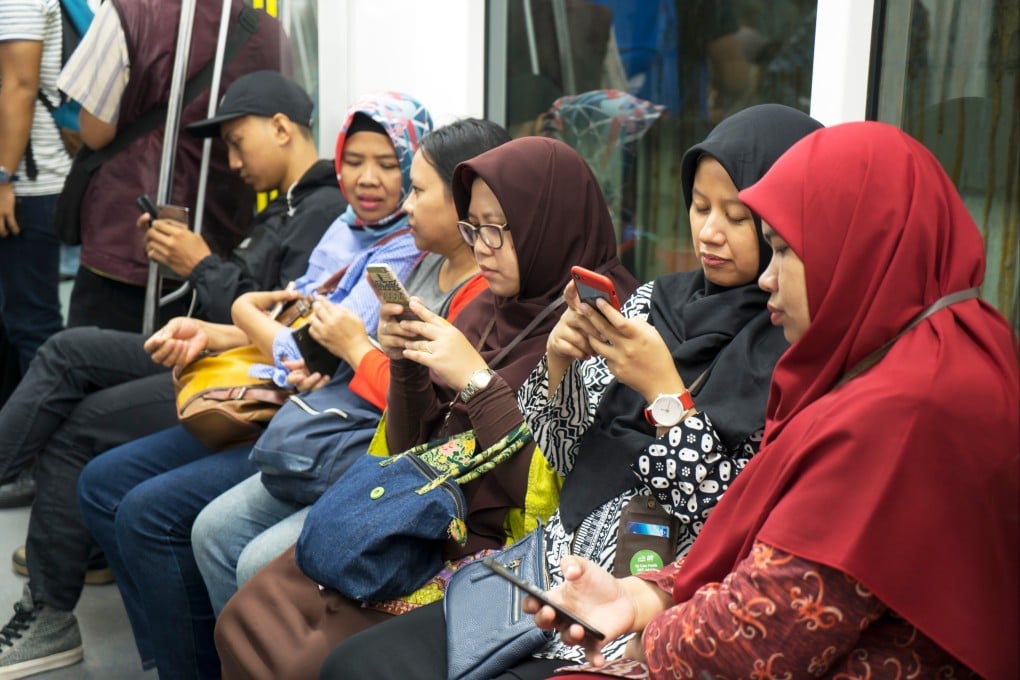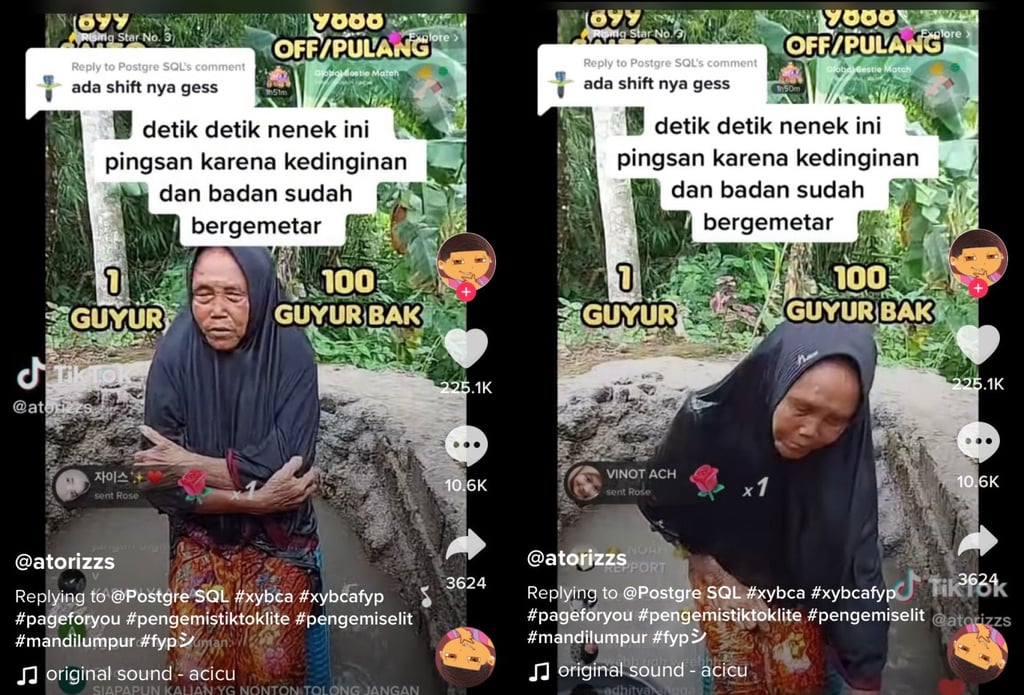Indonesia’s TikTok trend of begging for money in mud sparks backlash, exploitation concerns
- Modern TikTok beggars, mostly elderly women, have taken to pouring dirty river water over themselves on demand, in exchange for virtual gifts
- Jakarta condemns videos, urges public to report similar content and create material that does not take advantage of Indonesians’ generosity

In the past month, internet users in Southeast Asia’s biggest economy have been stunned by a growing number of online beggars, who take advantage of the gift-giving features offered by TikTok, owned by China’s ByteDance.
The video-sharing platform allows any accounts with at least 1,000 followers to film live-stream videos, and viewers can show appreciation by sending virtual gifts which are convertible to actual money.

Unlike in real life, where beggars might sit for hours in scorching heat or wander around asking for cash, many of these modern TikTok beggars – mostly elderly women – have taken to pouring dirty river water over themselves on demand, in exchange for virtual gifts.
A live-stream video of this so-called “mud bath” can take hours. After one such video went viral earlier this month, people have been questioning whether the women are doing the stunts out of their own will or are being exploited by family members.
“This woman looks like she’s really forced to do this, poor her,” said TikTok user atorizzs, whose screen recordings of the mud bath video went viral this month.
The videos have met with a backlash in Indonesia, which makes up TikTok’s second-biggest user base in the world with 99.1 million users, below the United States’ 136.4 million.